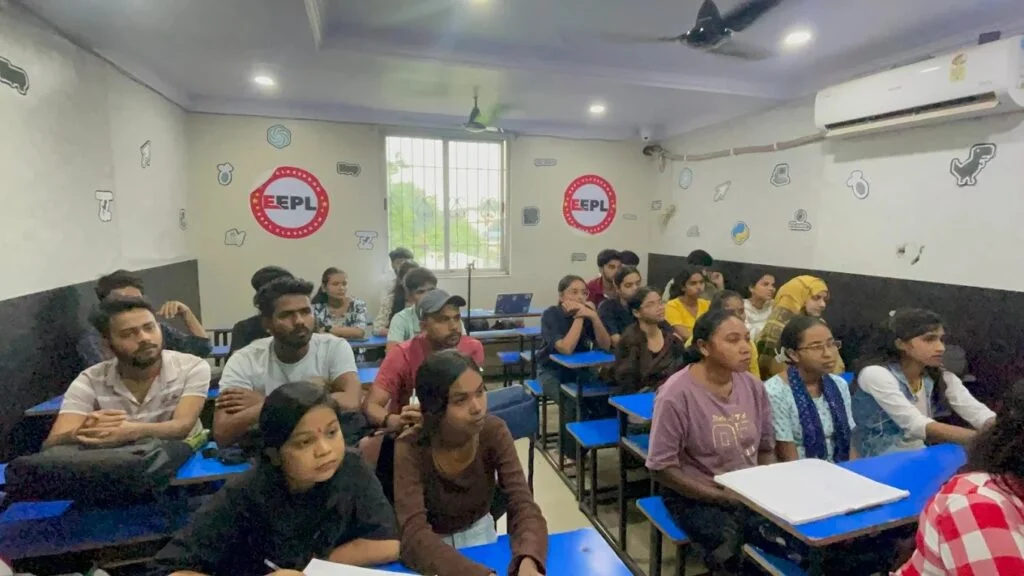1. Know What’s Expected
Before you dive into preparation, it’s crucial to understand the syllabus and exam patterns for both NEET, JEE, and your Class 12 exams.
- NEET focuses on Physics, Chemistry, and Biology. So if you’re aiming for NEET, prioritize Biology (it’s 50% of the exam) and then balance your time between Physics and Chemistry.
- JEE is all about Physics, Chemistry, and Mathematics. Unlike NEET, JEE doesn’t have Biology, but it requires a deeper understanding of Physics and Mathematics.
Class 12 covers all 4 subjects, so you’re already juggling quite a bit, but here’s how you can align your preparation.
2. Make a Study Schedule That Works
A well-thought-out timetable will keep you on track. You don’t need to follow a rigid plan, but having a general structure can help.
- Daily Study Routine: Ideally, dedicate about 4-5 hours of study outside of school hours, splitting it between NEET/JEE prep and your Class 12 syllabus.
- Weekly Plan:
- Monday-Wednesday: Focus on JEE topics (especially Physics, Chemistry, and Mathematics).
- Thursday-Saturday: Tackle NEET Biology and Class 12 subjects.
- Sunday: Use it for revision, mock tests, and to clear any doubts.
3. Prioritize Key Subjects
You don’t have to study every subject equally. Focus more on the subjects that overlap between NEET and JEE, and adjust your schedule based on how comfortable you are with each subject.
- Physics & Chemistry: These are common for both exams, so spend time strengthening these areas.
- For NEET, make sure you’re comfortable with mechanics, optics, thermodynamics, and electricity.
- For JEE, you’ll also study these but with a deeper dive into advanced topics like electromagnetism, modern physics, and more complex chemical reactions.
- Mathematics (for JEE): Mathematics is a JEE-only subject, so be sure to practice regularly. Focus on algebra, calculus, and coordinate geometry.
- Biology (for NEET): Biology is entirely focused on the NEET exam. Spend time understanding each chapter thoroughly, as questions often come directly from the NCERT book.
4. Use NCERT Textbooks
- NEET: For Biology, stick to NCERT — it’s the gold standard. Your entire NEET exam will be based on it, so make sure you’re mastering all the chapters.
- Physics & Chemistry: Both exams require a strong foundation in NCERT. For deeper understanding in Chemistry (especially physical chemistry), reference other books like M.S. Chauhan or O.P. Tandon.
5. Practice Makes Perfect
To ensure you’re truly prepared, solve as many practice papers and mock tests as you can. These will help you understand the exam pattern and identify areas where you need more practice.
- For NEET: Practice previous years’ NEET papers and solve sample questions regularly.
- For JEE: Solve past year JEE papers and attempt mock tests. Pay special attention to time management because JEE questions can be tricky and time-consuming.
6. Don’t Forget About Regular Revision
- Revise Often: The key to success in any exam is revision. Set aside time every week to review what you’ve studied. This will help you retain information and reduce last-minute stress.
- Quick Notes: As you go through your chapters, make short notes for quick revision, especially for key concepts, formulas, and important reactions.
7. Stay Healthy and Manage Stress
Balancing studies with school can be tough, but your health is just as important. Make sure to:
- Sleep Well: Try to get at least 7-8 hours of sleep. You need your mind to be sharp.
- Eat Right: Fuel your brain with nutritious foods like fruits, vegetables, nuts, and plenty of water.
- Exercise: A little physical activity or meditation can help manage stress and keep you focused.
8. Stay Motivated and Positive
It’s easy to get overwhelmed, but stay positive and break down your goals into manageable chunks. Remember:
- Take small breaks throughout your study sessions to refresh your mind.
- Celebrate small victories—completing a chapter or scoring well on a mock test is an achievement!
Sample Daily Routine
Here’s a sample study schedule that you can tweak according to your needs:
| Time | Activity |
|---|---|
| 6:00 AM | Wake up, freshen up, and light exercise |
| 7:00 AM | Study Biology (NEET) or Chemistry (JEE) |
| 9:00 AM | Take a break and have breakfast |
| 9:30 AM | Study Mathematics (JEE) or Physics (NEET) |
| 12:00 PM | Class 12 Revision (All Subjects) |
| 1:30 PM | Lunch break |
| 2:00 PM | Study Physics (NEET) or Chemistry (JEE) |
| 4:00 PM | Take a mock test or practice questions |
| 6:00 PM | Break & Rest |
| 7:00 PM | Study Mathematics (JEE) or Biology (NEET) |
| 9:00 PM | Quick Revision (Class 12) or Notes review |
| 10:00 PM | Relax and sleep |
Conclusion
Balancing NEET, JEE, and Class 12 studies is challenging, but with the right approach, you can excel in all of them. Stay focused, plan well, and make time for both study and rest. You’ve got this! Best of luck with your exams!










